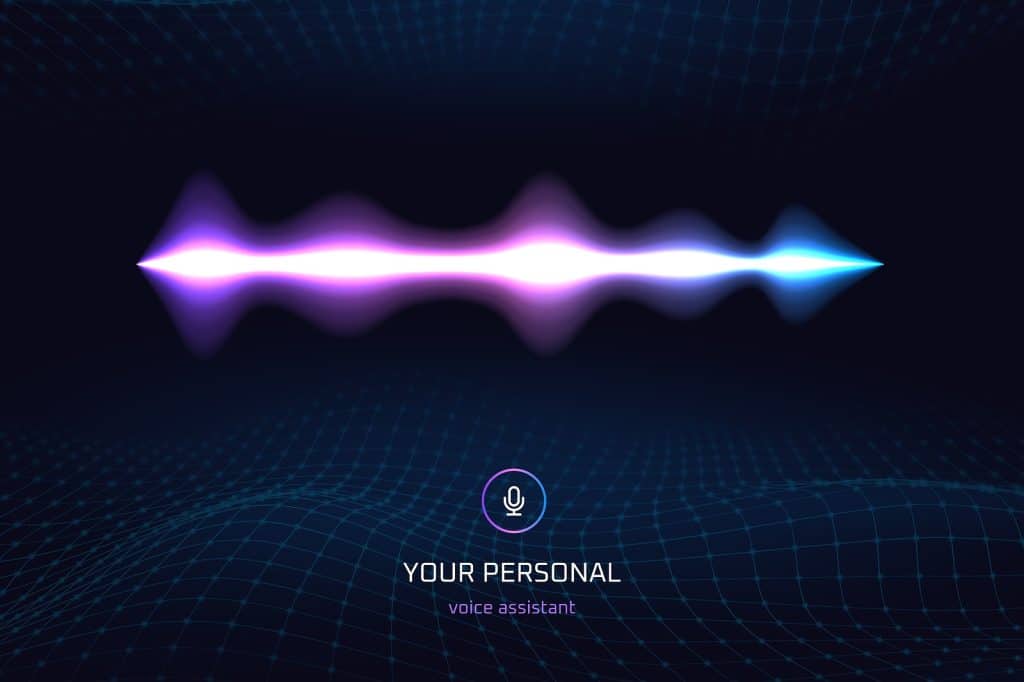How to avoid AI Voice Scams is important knowledge in today’s world. In the world of AI voice technology, the lines between reality and deception are easily blurred. Imagine receiving a call from what seems like a trusted family member or an esteemed professional, only to find out later that it was all a carefully crafted scam. This is the alarming reality of AI voice scams, a growing threat.
Table of Contents
This article will explore the rise of AI voice technology, how scammers exploit it for their nefarious purposes, common signs to watch out for, and, most importantly, practical tips on protecting yourself from falling victim to these deceitful schemes. It’s time to arm yourself with knowledge and learn how to navigate this new terrain safely! So, let’s dive in and discover how to avoid AI voice scams before they even have a chance to dial your number.
How to Avoid AI Voice Scams
What Is An AI Voice Scam?
To successfully avoid AI voice scams, one must first understand what they are. AI voice scams, also known as voice phishing or vishing, are a type of cybercrime that leverages the power of artificial intelligence and voice technology to deceive unsuspecting individuals. These scams involve fraudsters using AI-generated voices to impersonate someone familiar, such as a family member, bank representative, or government official.
The deceptive nature of AI voice scams lies in their ability to mimic human speech patterns and emotions with astonishing accuracy. Scammers can manipulate these advanced systems to make their calls seem genuine and trustworthy. They may employ various tactics like urgency, fear-mongering, or even sympathy to convince victims to divulge personal information or make monetary transactions. Consider these red flags when thinking about how to avoid AI voice scams.

How AI Voice Scams Work
AI voice scams are particularly concerning because they exploit our inherent trust in familiar voices. We naturally believe what we hear from people we recognize and often lower our guard regarding phone conversations. This vulnerability allows scammers to prey on our goodwill and catch us off guard.
These scams can devastate victims who unknowingly disclose sensitive details like credit card numbers, social security numbers, or login credentials. The repercussions may include identity thefts, financial losses, compromised accounts, and emotional distress. So, to not be a victim, knowing how to avoid AI voice scams is critically important.
As technology advances at an unprecedented rate, individuals need to be aware of the potential dangers AI voice scams pose. By understanding how scammers use this technology against us and recognizing the signs of fraudulent calls early on, we can take proactive measures to safeguard ourselves from falling victim to these deceitful schemes.

The Rise of AI Voice Technology
Knowing how to avoid AI voice scams is more critical as AI Voice technology becomes more sophisticated. The rise of AI voice technology has revolutionized how we interact with our devices. Gone are the days of typing commands or pressing buttons. Now, all you need is your voice.
From virtual assistants like Siri and Alexa to smart home devices that respond to voice commands, AI voice technology has become an integral part of our daily lives. With advancements in machine learning and natural language processing, AI voices have become incredibly realistic and indistinguishable from human voices.
Scammers can use AI voice technology to impersonate someone well-known and trusted. They may call you pretending to be a loved one needing money or a customer service agent asking for sensitive information. These convincing scams play on our emotions, making it easy to fall victim if we’re not careful.
How to Avoid AI Voice Scams By Recognizing Common Signs
One common sign of an AI voice scam is when the caller asks for personal information such as your social security number or credit card details over the phone. Legitimate organizations will never ask for this information unsolicited over the phone. Do not share sensitive personal data if you did not initiate the call.
Being vigilant and skeptical when receiving unexpected calls is an important part of knowing how to avoid AI voice scams. If someone claims to be a friend or family member needing money, verify their identity by calling them back using a known number. Another top Totesnewsworthy tip for avoiding AI voice scams is to ask a secret question only they would know.
If you suspect an AI voice scammer has targeted you or fallen victim to one, take immediate action. Report the incident to your local authorities and contact your bank, credit card providers, and credit reporting agencies to ensure no financial information was compromised.

How Scammers Use AI Voice Technology
Scammers are constantly finding new ways to exploit technology for their malicious purposes, and AI voice technology has unfortunately become one of their tools. One common scam involves using AI voice technology to impersonate a trusted person or organization.
Scammers can manipulate recorded audio snippets of someone’s voice to create convincing “deepfake” videos or phone calls. They often pretend to be a distressed family member, bank representative, or celebrity offering exclusive opportunities. Ultimately, they are after your money, so always be on guard.
Another tactic scammers employ is creating automated chatbots with AI voices that interact with victims through messaging apps or websites. These bots are programmed with sophisticated algorithms that mimic human conversation patterns, making it difficult for users to distinguish between real and fake interactions. They aim to extract personal information or persuade people to click malicious links.
Furthermore, scammers may use AI voice technology in robocalls, where an automated system makes prerecorded messages sound more natural by incorporating AI-generated speech patterns and intonations. By leveraging this advanced technology, scammers can make their calls appear legitimate and trustworthy.

Common Signs of an AI Voice Scam
When it comes to AI voice scams, staying vigilant is key. By being aware of the common signs, you can protect yourself from falling victim to these deceptive schemes. Here are some red flags to watch out for:
- Unusual or robotic speech patterns: If the voice on the other end sounds unnatural or lacks human-like intonations, it could be a sign that you’re dealing with an AI voice scammer.
- Persistent and unsolicited calls: Scammers often use automated systems to make repeated calls to wear down their targets and increase their chances of success. If you receive constant phone calls from an unknown number urging you to take immediate action or provide personal information, proceed cautiously.
- Requests for sensitive information: Legitimate organizations rarely ask for confidential data over the phone, especially when initiated by them. Be skeptical if someone claiming to represent a company asks for your financial details, social security number, or password without a valid reason.
- Poor grammar and pronunciation: While not foolproof indicators, scammers using AI voice technology may struggle with proper grammar and pronunciation due to limitations in programming accuracy.
- High-pressure tactics and time constraints: Scammers frequently employ urgency as a tactic to pressure victims into making hasty decisions without thinking critically about potential consequences.
Remember, these signs don’t guarantee that every call is fraudulent, but being cautious can help protect against becoming a victim of an AI voice scam.
Top Ways How To Avoid AI Voice Scams
- Be cautious of unsolicited calls or messages: If you receive a call or message from someone claiming to be a representative from a company or organization, especially if you didn’t initiate contact, proceed with caution. Only provide personal information once you have verified the caller.
- Verify the caller’s identity: Before sharing any sensitive data, take the time to verify the caller’s identity. Ask for their full name, job title, and contact information. Look up the official phone number of the company they claim to represent and call them back directly.
- Don’t trust voice commands: AI voice technology has made it easier for scammers to manipulate people into performing certain actions over the phone. Always double-check before following any instructions. And never click on links sent to you through emails, messages, or chats.
- Stay updated on scams: Keep yourself informed about recent scams involving AI voice technology by regularly checking news sources or websites dedicated to cybersecurity awareness. Knowledge is your best defense against falling victim to these scams.
- Always use strong passwords and two-factor authentication: Protecting your accounts with strong, unique passwords that are hard to guess is crucial in preventing unauthorized access by scammers using AI voice technology. Also, make sure you enable two-factor authentication whenever possible as an additional layer of security.
- Report suspicious activities promptly: If you suspect you have encountered an AI voice scammer, report it immediately to your local law enforcement agency and notify relevant authorities such as your bank or credit card provider. They can help investigate further and prevent others from falling prey to similar fraud tactics.
By staying vigilant and following these tips, you can greatly reduce the risk of becoming a victim of AI voice scams. Don’t let scammers take advantage of this advanced technology; protect yourself and spread awareness among friends and family members, too!
Read more – What Is A Digital Certificate, And How Does It Work?








